15 Surprising Things You’re Not Allowed To Bury In Your Yard (Even On Private Property)
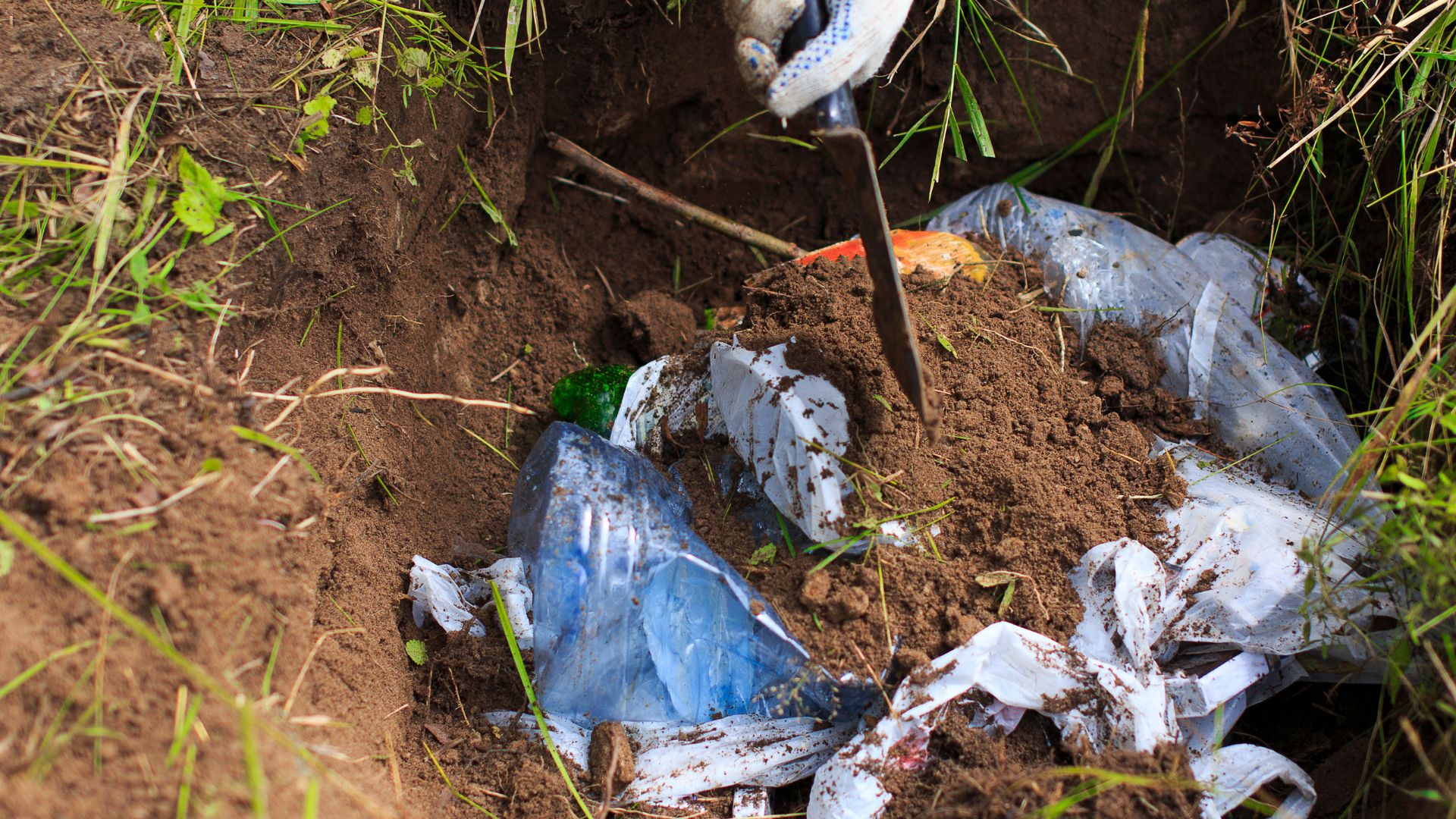
I used to think that owning a piece of land meant I could pretty much do whatever I wanted with it—including burying things if I needed to. Turns out, it’s not that simple.
Even something that feels harmless, like disposing of old wood or pet waste, can run afoul of local or environmental regulations. There are laws in place that limit what can go underground—and they’re not just red tape.
These rules exist to keep our soil and groundwater clean and to protect nearby wildlife and neighbors. So, before you dig that hole, it’s worth checking what’s actually allowed in your area.
1. Household Chemicals And Paint
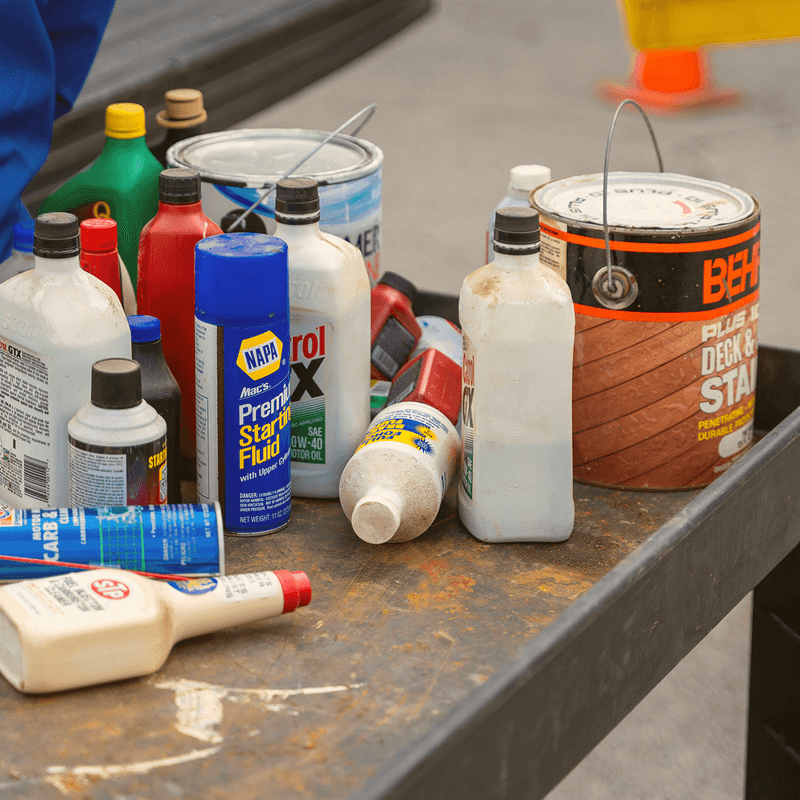
That half-empty can of paint might seem harmless enough to toss in a hole and forget about. Many homeowners don’t realize these products contain toxic compounds that can leach into soil and eventually contaminate groundwater that feeds local wells and water systems.
Environmental protection laws specifically prohibit the burial of household chemicals, paints, solvents, and similar products. The chemicals can persist for decades, causing long-term damage to ecosystems and potentially affecting human health through contaminated drinking water.
Instead of burying these items, take advantage of your community’s hazardous waste collection events. Most counties hold several each year where you can drop off these materials for proper disposal. I was surprised to learn my local hardware store also accepts old paint for recycling!
2. Appliances And Electronics
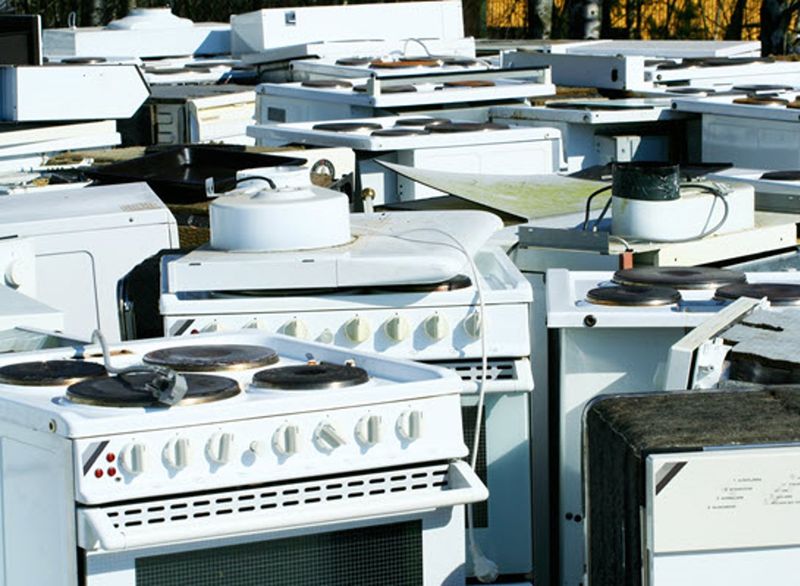
The old refrigerator that finally quit working might seem like a perfect candidate for a backyard burial. Many people don’t realize these items contain hazardous components like refrigerants, mercury switches, and circuit boards filled with toxic metals.
Federal regulations under the Resource Conservation and Recovery Act make it illegal to bury appliances and electronics. These items release harmful substances that can contaminate soil and groundwater for generations, potentially causing serious environmental damage and health risks.
Rather than creating an illegal appliance graveyard, contact your waste management company about bulk pickup services. Many retailers also offer to haul away old appliances when delivering new ones. The small fee is certainly cheaper than the hefty environmental fines you could face!
3. Car Batteries And Automotive Fluids
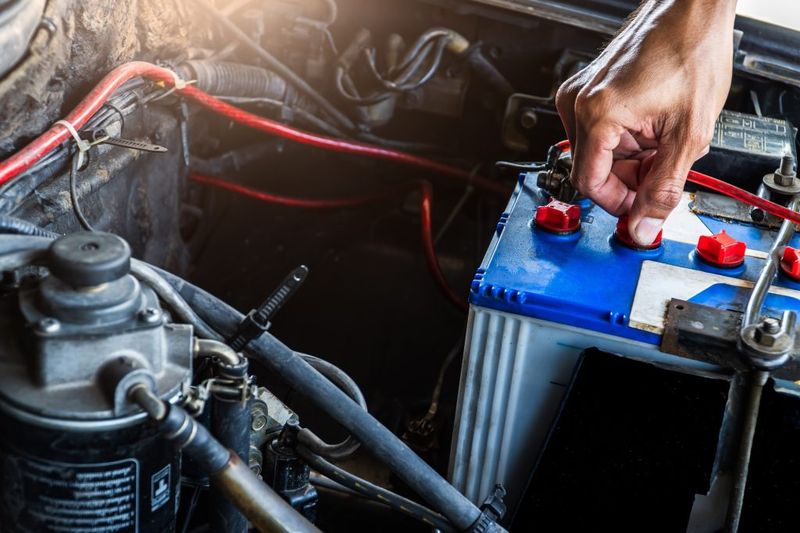
After changing your car’s oil or replacing its battery, you might be tempted to dispose of the old materials in your backyard. The acid in batteries and chemicals in automotive fluids seem contained in their containers, so what’s the harm?
Both federal and state laws strictly prohibit burying these items because they contain extremely hazardous materials. Battery acid can burn through soil and contaminate groundwater, while used motor oil contains heavy metals and toxins that can poison wildlife and water supplies for decades.
Auto parts stores typically accept used batteries and oil for recycling at no charge. They actually want these materials since they can be recycled into new products. I was pleasantly surprised when my local shop even gave me a small store credit for bringing in my old battery!
4. Medical Waste
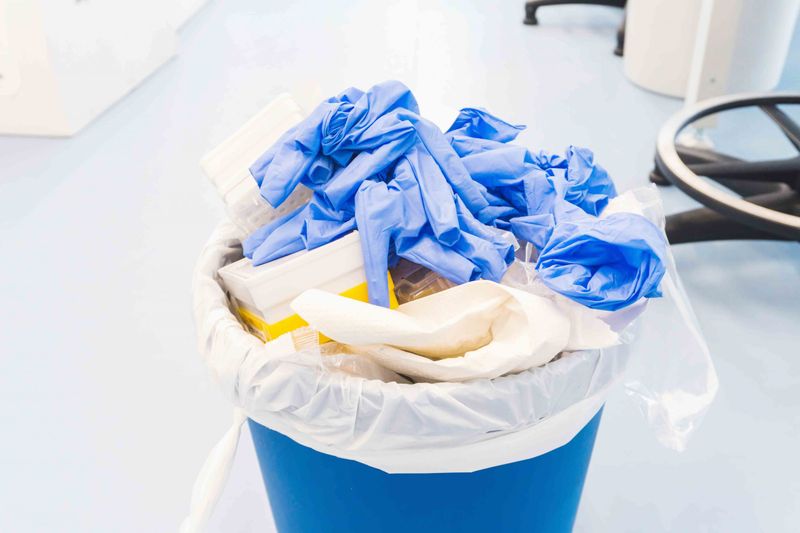
Home healthcare generates various waste materials like needles, expired medications, and bandages. Some people mistakenly believe that burying these items is safer than throwing them in the regular trash where others might come into contact with them.
Federal biomedical waste regulations expressly forbid burying medical waste on private property. These materials can harbor pathogens, introduce pharmaceuticals into groundwater, or create hazards for anyone who might dig in the area later. The risks extend beyond your property lines as contaminants migrate through soil.
Many pharmacies offer take-back programs for unused medications and sharps containers. Local health departments can also provide guidance on proper disposal methods. When my mother needed home care, our hospital provided special containers for medical waste that could be returned for safe processing.
5. Asbestos Materials
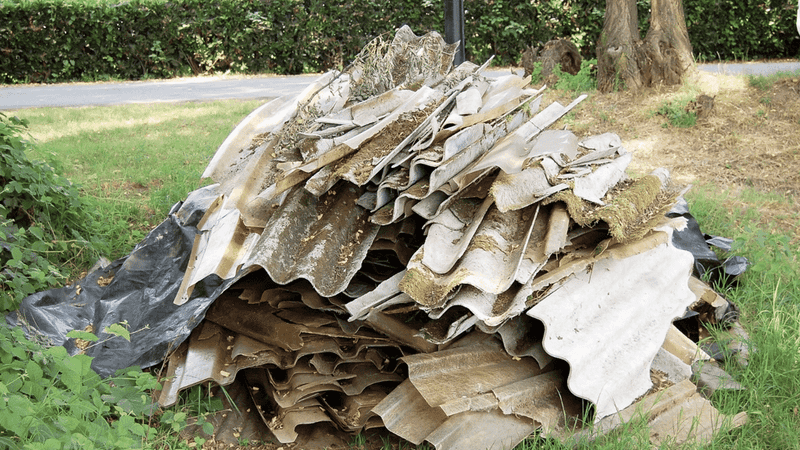
During home renovations, you might encounter old asbestos insulation, tiles, or siding. The temptation to dig a hole and make these hazardous materials disappear seems like an easy solution to a complicated problem.
The Environmental Protection Agency has regulations against burying asbestos-containing materials on private property. When disturbed or degraded, asbestos releases microscopic fibers that can cause deadly diseases and lung cancer when inhaled. These fibers can eventually work their way back to the surface.
Licensed asbestos removal companies are the only legal option for disposing of these materials. Yes, professional removal is expensive, but I’ve seen the effects of asbestos-related illness in my uncle who worked construction. The health costs far outweigh the financial ones when it comes to proper disposal.
6. Tires
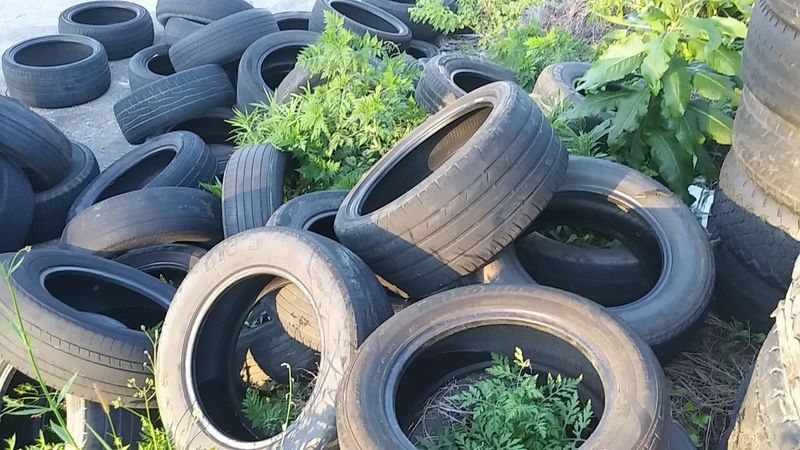
Old tires take up space and aren’t exactly attractive to store around your property. The rubber seems inert, and burying them might seem like a practical solution for getting them out of sight. Most states have specific laws prohibiting the burial of tires on private property.
When buried, tires often trap methane gas and can rise back to the surface years later like rubber zombies. They also create perfect breeding grounds for mosquitoes when they collect water, potentially spreading diseases like West Nile virus.
Tire retailers typically charge a small disposal fee when you purchase new tires. This fee covers the cost of recycling your old ones into playground surfaces, road materials, or other products. Our neighborhood once discovered an illegal tire dump, and the cleanup costs were staggering compared to proper disposal fees.
7. Construction Debris
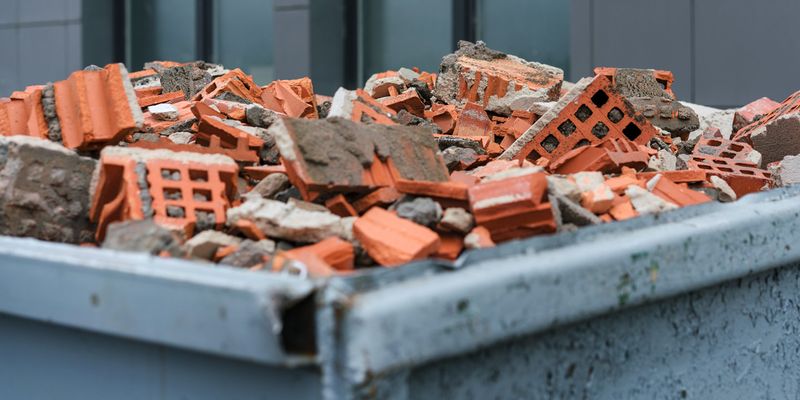
After a renovation project, you might find yourself with piles of drywall, treated lumber, and other construction materials. Your spacious backyard seems like a convenient place to dispose of these bulky items without paying for a dumpster.
Local ordinances typically forbid burying construction debris on residential property. Treated lumber contains chemicals designed to resist decay, which can leach arsenic and other preservatives into soil. Drywall releases hydrogen sulfide gas as it breaks down, creating both odor problems and potential health hazards.
Construction waste should be taken to designated landfills or recycling centers equipped to handle these materials. When we remodeled our kitchen, we found a local recycling center that took our old cabinets and actually repurposed them for community projects. It felt much better than creating an underground waste site!
8. Whole Vehicles
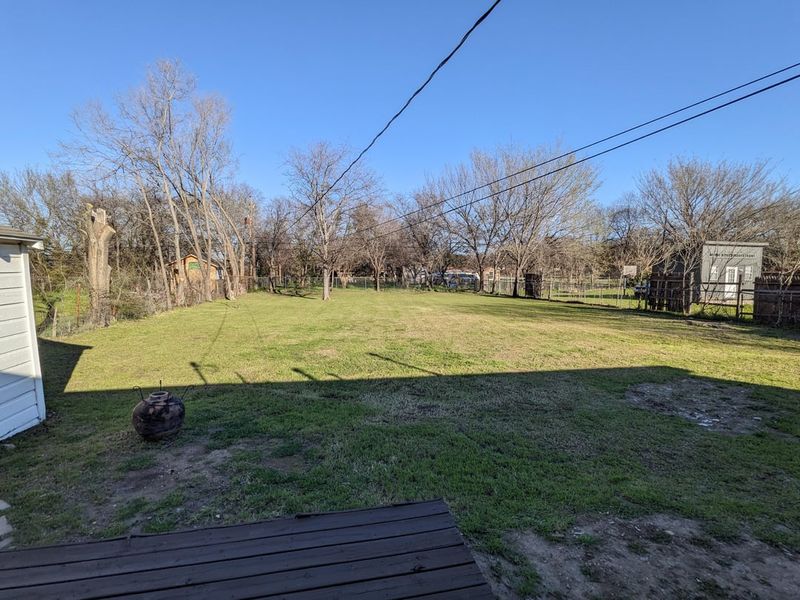
That old junker taking up space in your driveway might seem like it could make a unique time capsule if buried on your property. Some people have even attempted to bury vehicles as makeshift storm shelters or storage bunkers.
Federal and state environmental laws strictly prohibit burying vehicles on private property. Cars and trucks contain numerous hazardous fluids, heavy metals, and components that contaminate soil and groundwater. The vehicle’s structure also creates dangerous spaces that can collapse unexpectedly as the vehicle deteriorates.
Junkyards will often pay you for old vehicles, even non-running ones, because of their scrap metal value. My neighbor actually made several hundred dollars selling his old truck to a salvage yard. They handled all the paperwork and even towed it away at no charge!
9. Fuel Tanks
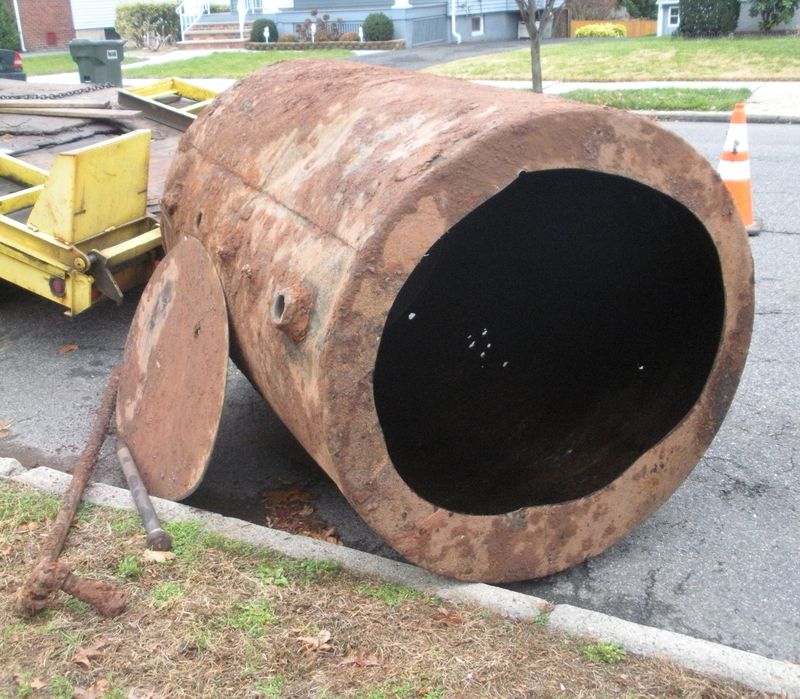
Abandoned fuel tanks from old heating systems or farm equipment might seem permanently sealed and safe to bury. The thick metal walls appear sturdy enough to contain any remaining fuel indefinitely.
Environmental regulations specifically prohibit burying fuel tanks without proper decommissioning. Even tiny amounts of remaining fuel can contaminate vast quantities of groundwater. Over time, tanks inevitably rust and develop leaks, creating environmental hazards that can affect neighboring properties and water supplies.
Professional tank removal services can safely extract, clean, and dispose of old fuel tanks. While researching this topic, I was shocked to learn that a single gallon of spilled fuel can contaminate a million gallons of drinking water! The remediation costs for a leaking tank can easily run into tens of thousands of dollars.
10. Pets And Livestock
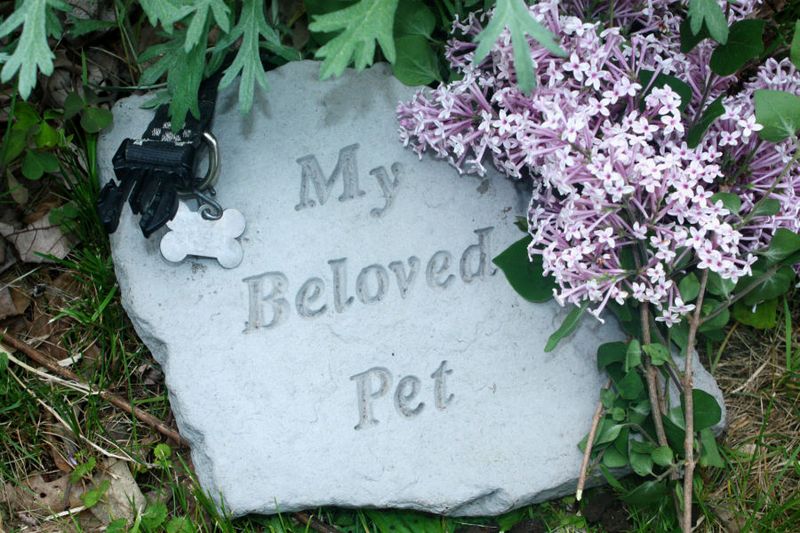
When beloved animals pass away, many people instinctively want to bury them on their property. It seems like a fitting tribute to lay them to rest in a place they loved, under a favorite tree or in a garden they enjoyed.
Many municipalities have ordinances restricting or prohibiting the burial of pets and livestock, particularly in urban and suburban areas. These regulations exist because decomposing remains can attract predators, contaminate groundwater (especially if the animal was euthanized with chemicals), and potentially spread disease.
Pet cremation provides a legal alternative that allows you to keep your companion’s remains. When our family dog passed, we found a pet cemetery that provided a beautiful memorial service. Some areas do permit backyard pet burial if specific conditions are met regarding depth and distance from water sources.
11. Human Remains Or Ashes
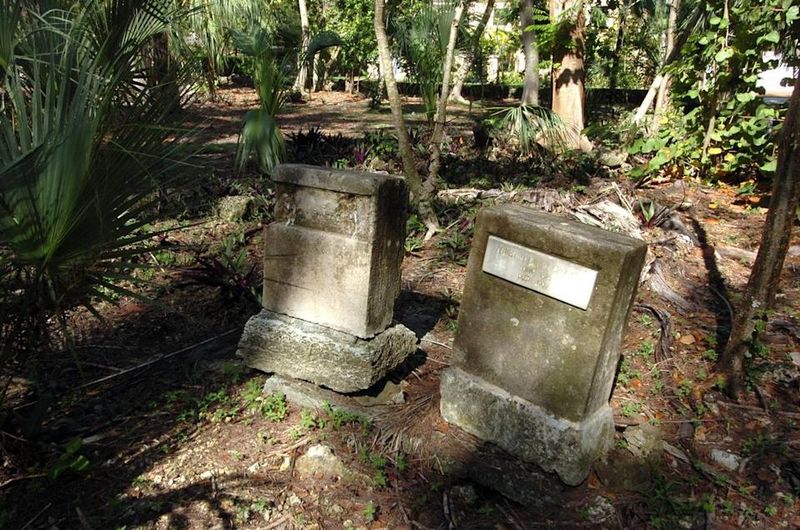
Family plots were once common on private property, and some people still wish to be buried on land that holds special meaning to them. The connection to ancestral land runs deep in many cultures and families. Most states heavily regulate human burial on private property, with many prohibiting it entirely.
Those that do allow it typically require specific permits, minimum acreage requirements, and proper documentation. Human remains must be recorded with local authorities to prevent future disturbance and ensure proper handling during any property transfers.
Cremation with ashes scattered or kept in an urn offers a legal alternative. Some states do permit family cemeteries under strict conditions. My great-grandfather’s farm actually has a small family plot, but it was established generations ago when regulations were different, and it’s now legally protected as a historical site.
12. Radioactive Materials
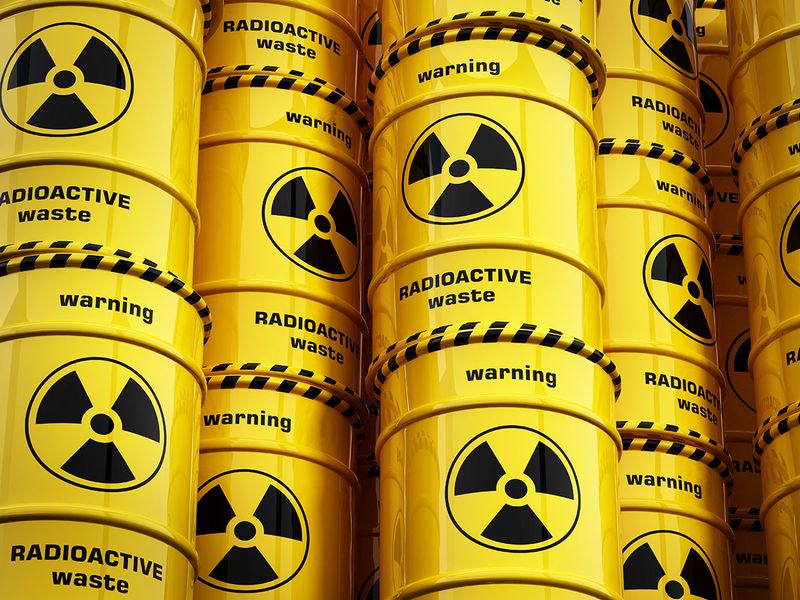
Certain consumer products contain small amounts of radioactive materials, like some older smoke detectors, glow-in-the-dark watch faces, and certain medical devices. These might seem harmless enough to bury when they’re no longer needed.
Federal law strictly prohibits the burial of any radioactive materials, no matter how small the amount. The Nuclear Regulatory Commission regulates these items because radioactive elements remain hazardous for extremely long periods—sometimes thousands of years—and can contaminate soil and water supplies.
Proper disposal varies by item type. For smoke detectors containing americium, many manufacturers accept returns for proper handling. I was surprised to learn my local hazardous waste facility has a special collection process for these items.
13. Large Amounts Of Paper And Cardboard
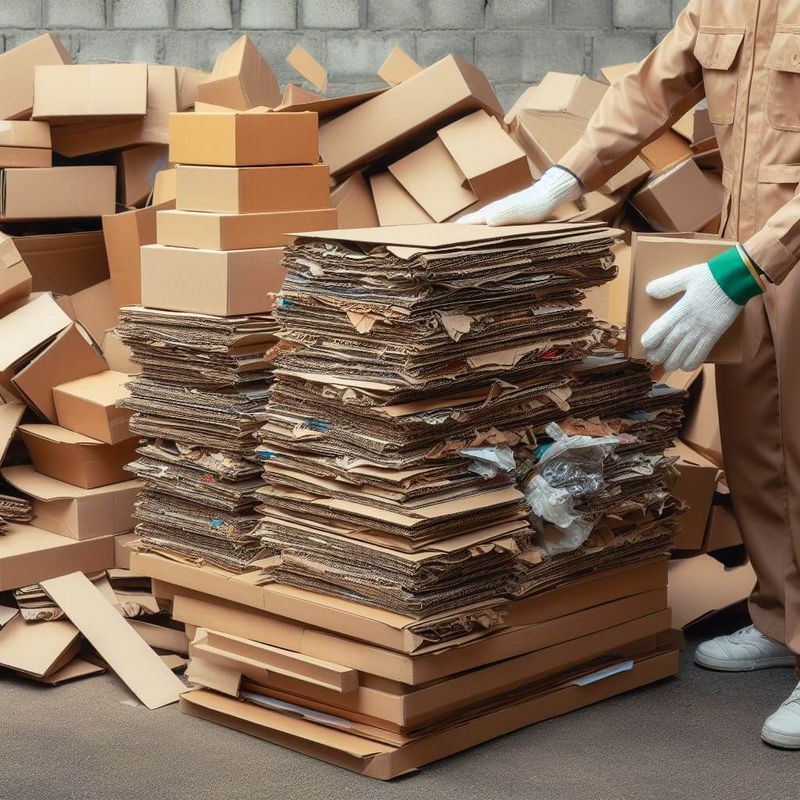
After moving or receiving large deliveries, you might end up with mountains of cardboard boxes and packing materials. Since paper products come from trees and seem biodegradable, burying them might appear to be an eco-friendly disposal method.
Local ordinances often prohibit burying large quantities of paper products on residential property. While technically biodegradable, large concentrations of paper create methane as they decompose underground. This gas can build up, creating explosion hazards and contributing to greenhouse gas emissions.
Recycling centers gladly accept cardboard and paper, turning them into new products. When we moved last year, I broke down our boxes and took them to our local recycling center. The entire carload was processed for free, and I felt good knowing the materials would be reused rather than wasted.
14. Food Waste In Large Quantities
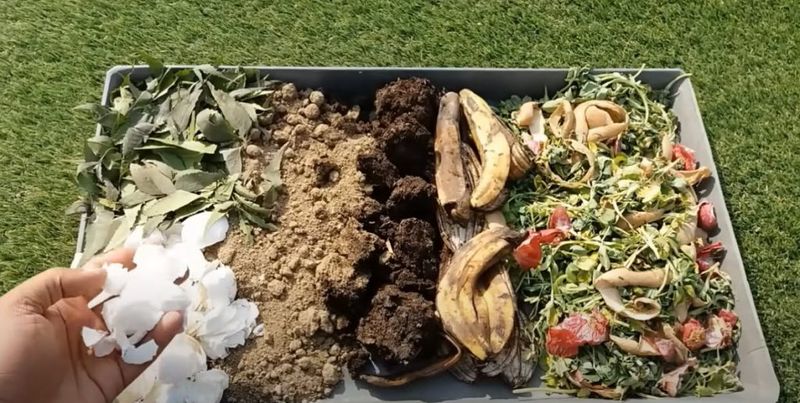
Composting food scraps seems like an environmentally responsible practice, and in controlled amounts, it can be. Some homeowners take this concept further, burying large quantities of food waste directly in their yards to avoid proper disposal fees.
Many municipal codes restrict burying substantial amounts of food waste, especially meat and dairy products. Large concentrations attract pests including rats, raccoons, and insects. They also release strong odors as they decompose and can contaminate groundwater with excess nutrients and pathogens.
Proper composting in designated bins provides a legal alternative for plant-based food waste. Our family composts fruit and vegetable scraps in a tumbler system that prevents pest access while creating valuable garden soil. For meat and dairy waste, municipal collection or in-sink disposal systems remain the safest options.
15. Plastic Materials
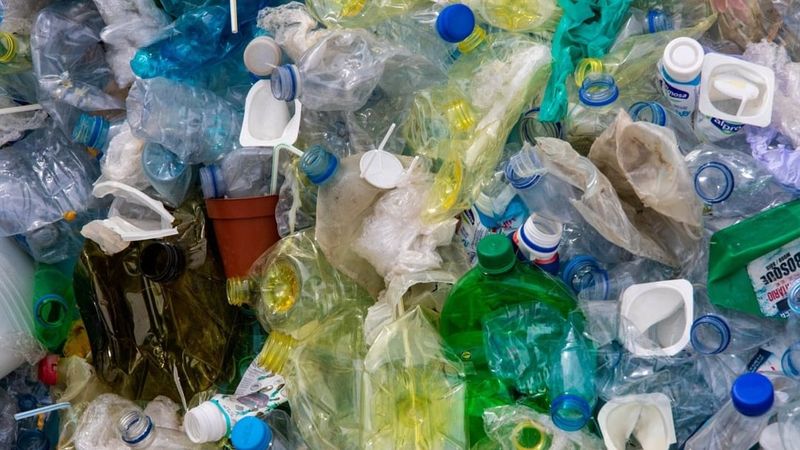
Plastic waste creates storage challenges, and some homeowners mistakenly believe that burying plastic bags, packaging, or broken items eliminates the problem. The material seems stable and unlikely to cause immediate environmental harm.
Environmental regulations prohibit burying plastic waste on private property. Despite appearances, plastics don’t biodegrade but instead break down into microplastics that persist in soil for hundreds of years. These particles contaminate soil, enter the food chain through plants and animals, and eventually make their way into water systems.
Since learning about microplastic pollution, I’ve become much more conscious about reducing our family’s plastic use altogether. Reusable shopping bags, containers, and products with minimal packaging has reduced what we need to dispose of in the first place.






